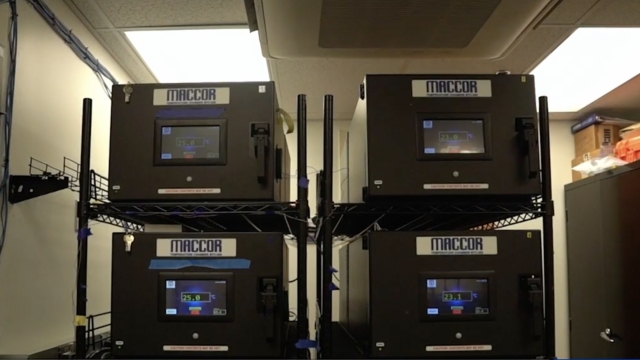Emma Romig is in the process of turning her "ah-ha"moment — discovered while RVing — into a market-ready innovation with her company, AMPD Camp.
"We're taking parked vehicles, particularly recreational vehicles, and using their batteries and solar panels basically to contribute to the grid," said Romig.
She said none of the progress she's making would be possible without the access she gets at the Testbeds program at the University of Washington Clean Energy Institute in Seattle.
"This shows that what we're doing works at a real scale, and that's really important," said Romig.
"We're in a special, purpose-built laboratory that's trying to reduce the barriers to turning early stage energy innovations into actual impact, which means commercializing them and getting them to scale," said Devin MacKenzie, the director of the Testbeds program.
He said when developing something like clean energy technology, you have to see how it works at a large-scale level. What will it do to the energy grid? What happens when it powers a car? Will this large field of solar panels work?
MacKenzie said figuring out those answers takes years, special skills, and a lot of money — things a clean-energy startup usually doesn't have.
SEE MORE: Tips to save on your energy bill this summer
"The kinds of equipment you need to do these things can be, you know, million-dollar scale equipment, and you might only need it for a short period of time," he said.
Inside a nondescript former manufacturing plant in Seattle, the Testbeds program houses that kind of equipment to test new batteries, solar panels, or other innovations — equipment like a computer that mimics an entire electric grid, a machine that creates flexible solar panels like a newspaper printing press, a quantum printer and many other cool things that are nerd-out worthy.
With either a monthly fee, a per-hour equipment fee, or through a grant, startups have open access not only to these fancy machines, but to people who are employed here who know how to run them.
"People can come and get their solutions very, very rapidly as opposed to being on a long learning curve," said MacKenzie.
There are a few other facilities across the country offering the same kind of technical help to startups. Some are with universities, while others are run by the government. While they differ in what they offer or how they operate, the goal is the same — to get new tech out fast to meet society's need for clean energy solutions.
"We focus on sort of accelerating that adoption and scaling of clean energy, because there are solutions out there," said MacKenzie.
In the rush to find alternatives to fossil fuels, the Testbeds program and facilities like it say they're helping to get clean energy solutions out quickly and as cost-effectively as possible.
"There's urgency sort of throughout the whole system to get something done and make it happen, so that quickness and ability to sort of turn ideas quickly, try new things, break things quickly, is absolutely critical," said Romig.
Trending stories at Scrippsnews.com





